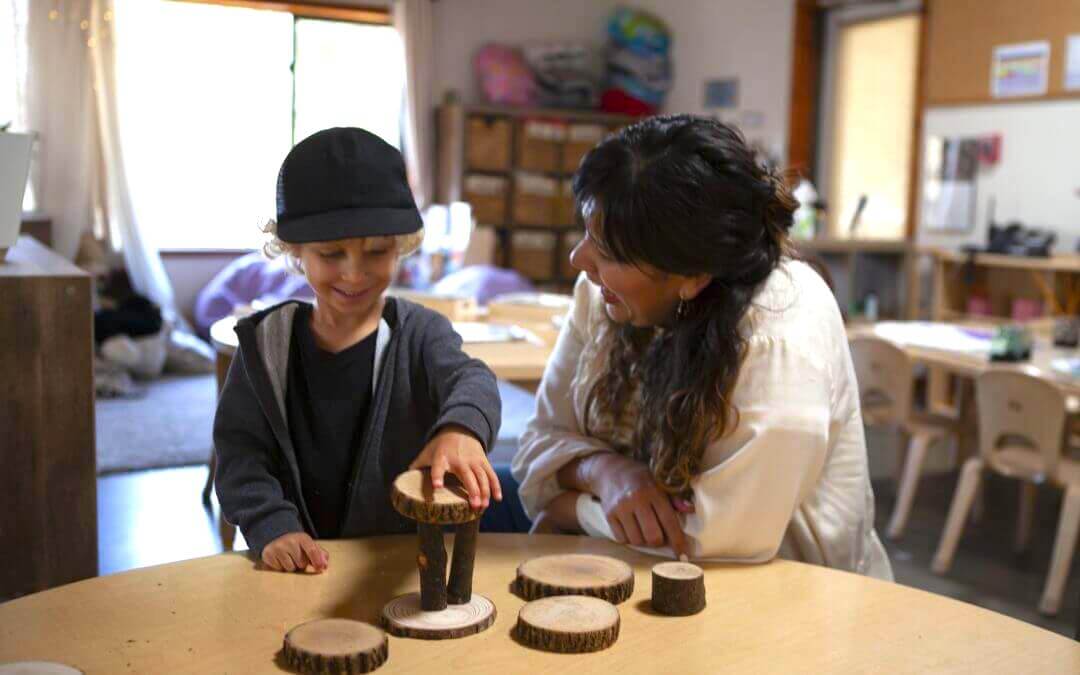Our partners at MUSE, who are building a network of schools that equip young people with the tools needed for a lifetime of curiosity, understand the importance of parents as partners in creating great learning outcomes.
Here they are sharing with us and the community the three most important features in Early Childhood Education (ECE) programs. These features that our own team at Natural Pod also see as vital to creating learning experiences and environments that will support students as they learn to live consciously with themselves, one another and the planet.
Personalized learning
As with older children and adults, early childhood-aged students have already developed individual interests and preferences – and it is incumbent upon educators to engage with them as a unique individual, not a number in a classroom. One-size-fits-all learning has proven to be ineffective for the majority of students, and leaves many feeling disengaged, unmotivated, and left behind in school. This is precisely why personalized learning is vital, particularly in the beginning of a child’s education.
At MUSE, early childhood teachers leverage several modalities to ensure that no student has to feel this way. Through passion-based learning, children identify their unique interests, and are taught content through topics they’re innately passionate about – making learning inherently fun and dynamic for them, personally. And with the Process Communication Model, teachers are subsequently able to identify each child’s communication and learning preferences, which facilitates a more fluid, compassionate engagement process throughout their schooling experience.
Environmental & sustainability fluency
We are at a crucial point in our civilization’s history; the research and science is conclusive that our planet is confronted with an all-encompassing climate crisis. Widespread action is imperative as we attempt to change the course of our earth and atmosphere’s degradation. But why is action only being taken now, when the circumstances are dire? Couldn’t we have circumvented this crisis? The answer lies in lack of environmental education. The vast majority of adults were simply not aware of their individual impact on the planet through daily consumption and behavior patterns, and now we are all paying the price.
It is evermore important for children to begin learning these essential life lessons from an early age, so they can grow into responsible, conscious adults that are environmental stewards. Fostering such individuals has the power to change the course of our reality, and bolster future generations in their ability to circumvent the current reality we are all facing, because they’re equipped with the knowledge and skills to do so. Arming children with key lessons in sustainability and climate action is one of the most important actions a parent can take for their child. This education is at the core of MUSE’s foundation and engrained throughout the framework, through developmentally appropriate environmental curriculum, campus sustainability standards, Seed-to-Table courses, climate and food justice trips, and beyond.
Student to teacher ratios
In traditional classrooms, children often become lost in large classes with a sole teacher attempting to plow through a set curriculum and rigid lesson plans. This has been a longstanding hurdle in education, and one that MUSE has sought to combat since its beginnings in 2006. Since then, MUSE administration and educators have worked tirelessly to ensure that students and teachers never have to experience the many negative implications of such school environments that have disserviced children for decades.
Each MUSE ECE program has a maximum of 8 students to each teacher within a given classroom. Doing so enables teachers to provide the nurturing and individualized education and attention that each young child needs and deserves as they begin their learning journey. And, as many are aware, the first five years of a child’s education establishes the foundation for the entirety of their education. Inserting them into an environment that addresses all of their needs, and celebrates what makes them unique, is essential as they develop their cognitive and social skills during these early years – to ensure their future as efficacious, empowered, and successful individuals.
About MUSE
MUSE equips young people with the tools needed for a lifetime of curiosity. With innovative academics, passion-based learning, and an emphasis on sustainability – students learn to live consciously with themselves, one another and the planet. Learn more about MUSE Global and their school franchise opportunities.

















